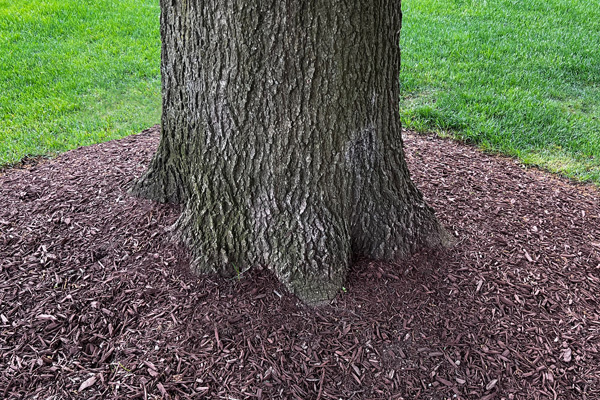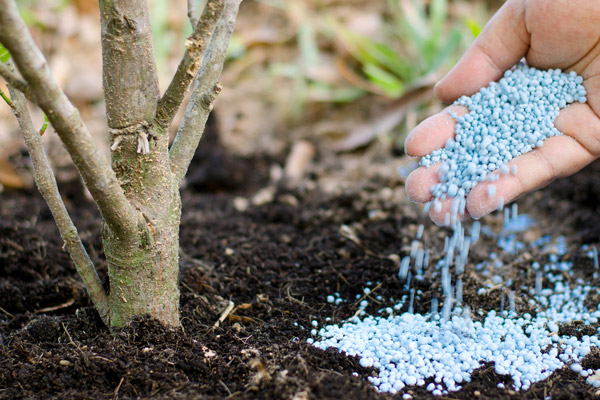
The Crucial Role of Deep Root Fertilizing in Preventing Root Plate Failure in Large Trees
Spring marks an ideal period for deep root fertilization of trees, as it coincides with the onset of their active growth phase. During this season, trees emerge from their winter dormancy, ready to absorb nutrients and water to support the development of new leaves, flowers, and root growth. Applying deep root fertilization in spring provides trees with essential nutrients at a critical time, enhancing their health, vigor, and resistance to pests and diseases throughout the growing season. This proactive approach not only supports the immediate growth demands but also strengthens the tree’s overall structure and stability, making spring an opportune time to invest in the well-being of your trees through deep root fertilization.
Deep root fertilization is a specialized process that delivers nutrients directly to a tree’s root zone, ensuring they receive the nourishment they need to grow strong and healthy. This technique is particularly crucial for large trees, as it can significantly impact their overall stability and longevity. One of the most critical benefits of deep root fertilizing is its role in preventing root plate failure, a condition that can have devastating consequences for large trees.
Understanding Root Plate Failure
Root plate failure refers to the destabilization and eventual uprooting of a tree due to weaknesses in the root system. This can occur for various reasons, including poor soil conditions, inadequate water supply, and diseases or pests that compromise root health. When the root plate of a large tree fails, it doesn’t just result in the loss of a tree. It can also cause significant damage to the surrounding area, including buildings, power lines, and other structures, not to mention the potential risk to human life.
The Importance of Deep Root Fertilization
Deep root fertilization addresses the root causes of root plate failure by ensuring that trees have access to essential nutrients deep within the soil. This process involves injecting fertilizers into the soil at a depth of 12-14 inches using specialized equipment. By delivering nutrients directly to the root zone, trees can absorb them more efficiently, leading to several key benefits:
1. Enhanced Root Growth and Strength
Proper nutrition is crucial for the development of a robust root system. Deep root fertilizing provides trees with the necessary elements to grow strong, healthy roots that can anchor the tree firmly in the ground. This increased root strength is a primary defense against root plate failure.
2. Improved Soil Structure
The process of deep root fertilization can also help improve soil structure by increasing aeration and reducing compaction. This enhanced soil environment promotes healthier root growth and improves water infiltration, which is vital for the overall health of the tree.
3. Disease and Pest Resistance
Trees that receive adequate nutrition are better equipped to resist diseases and pests, which can weaken the root system and lead to root plate failure. By maintaining a healthy nutrient balance in the soil, deep root fertilizing helps trees build natural defenses against these threats.
4. Stress Tolerance
Trees in urban or suburban environments often face numerous stresses, including pollution, limited growing space, and physical damage. Deep root fertilization helps trees better tolerate these stresses by ensuring they have the nutrients needed to maintain health and vigor.
Implementing Deep Root Fertilization
While deep root fertilization offers significant benefits, it’s essential that it’s done correctly to be effective. This includes selecting the right type of fertilizer, determining the appropriate timing and frequency of applications, and using the correct equipment. It’s often best to consult with a professional arborist or tree care specialist who can assess the specific needs of your trees and provide tailored recommendations.
Conclusion
Deep root fertilizing is more than just a maintenance task for large trees—it’s a crucial investment in their health, stability, and longevity. By ensuring trees have access to the nutrients they need, deep root fertilizing plays a vital role in preventing root plate failure and preserving the many benefits that large trees provide to our environment and communities. Whether you’re a homeowner, property manager, or municipal official, prioritizing deep root fertilization can help safeguard the trees under your care and ensure they continue to thrive for years to come.



